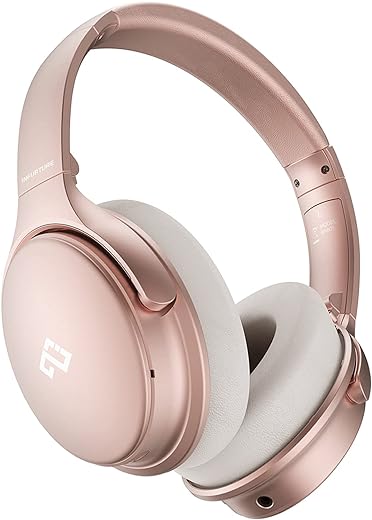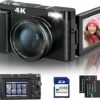
Welcome to our blog post where we dive into the fascinating world of noise cancelling headphones. If you’re someone who craves the perfect audio experience while immersing yourself in your favorite music or blocking out the chaos of the outside world, then you’ve come to the right place. Today, we’ll be shedding light on the ongoing debate between wired and wireless noise cancelling headphones, helping you make an informed decision based on your unique needs and preferences. So, grab a cup of your favorite beverage, sit back, and let’s embark on this enlightening journey together.
Immerse yourself in pure sound bliss with our top picks for noise cancelling headphones
Understanding Noise Cancelling Headphones
Noise cancelling headphones have become increasingly popular in recent years, offering a way to enjoy music, movies, or simply some peace and quiet in noisy environments. In this blog section, we will delve into how noise cancelling headphones work and explore the benefits of using them in various settings.
How do Noise Cancelling Headphones Work?
Noise cancelling headphones utilize advanced technology to reduce or eliminate background noise, allowing you to enjoy your audio content without distractions. They achieve this through a combination of microphones, circuitry, and speakers. Here’s a breakdown of the key components and the process involved:
- Microphones: Noise cancelling headphones are equipped with one or more microphones that capture external sounds.
- Noise Cancellation Circuitry: The captured sound is then processed by the noise cancellation circuitry, which analyzes the frequency and amplitude of the incoming noise.
- Anti-Noise Generation: Based on the analysis, the circuitry generates an anti-noise signal that is the exact opposite of the incoming noise.
- Speakers: The generated anti-noise signal is played through the headphones’ speakers simultaneously with the audio content you’re listening to, effectively cancelling out the external noise.
This active noise cancellation process allows you to hear your audio with greater clarity, even in noisy environments.
Benefits of Noise Cancelling Headphones
Noise cancelling headphones offer a multitude of benefits that make them a worthwhile investment. Let’s explore some of the key advantages:
1. Enhanced Audio Experience
By reducing or eliminating background noise, noise cancelling headphones allow you to fully immerse yourself in your audio content. Whether you’re enjoying your favorite music, watching a movie, or listening to a podcast, the enhanced audio experience can be truly remarkable.
2. Increased Focus and Productivity
In environments such as offices, coffee shops, or airplanes, where ambient noise can be distracting, noise cancelling headphones provide a valuable tool for concentration. By creating a quiet bubble around you, they help you stay focused on your tasks, boosting productivity.
3. Travel Comfort
Frequent travelers can attest to the discomfort of long flights or train rides, especially when surrounded by engine noise or chatter. Noise cancelling headphones offer a respite from these disturbances, making your journey more pleasant and relaxing.
4. Hearing Protection
Exposure to loud or continuous noise can be damaging to your hearing over time. Noise cancelling headphones offer an additional layer of protection by reducing the need to increase the volume to drown out external noise. This helps preserve your hearing health in the long run.
5. Versatility
Noise cancelling headphones are available in various styles, including over-ear, on-ear, and in-ear options. This versatility allows you to choose a design that best suits your preferences and comfort level.
Wired Noise Cancelling Headphones
In the world of headphones, noise cancellation has become an essential feature for many users seeking a truly immersive audio experience. While wireless options have gained popularity, wired noise cancelling headphones still hold their ground with a host of advantages. In this blog post, we will explore the features and benefits of wired noise cancelling headphones, highlighting their superior audio quality and uninterrupted connectivity.
Superior Audio Quality
When it comes to audio fidelity, wired noise cancelling headphones reign supreme. The direct connection to your device ensures a consistent and high-quality audio signal, delivering every nuance of your favorite music or movie soundtrack. Here’s why wired headphones are a sound investment for audiophiles:
- Uncompromised Sound: With a wired connection, you can enjoy audio in its purest form, without any loss of quality or interference from wireless transmission.
- Hi-Res Audio Support: Many wired noise cancelling headphones support Hi-Res audio formats, allowing you to experience studio-quality sound reproduction with exceptional clarity and detail.
- Enhanced Bass Response: Wired headphones often provide a deeper and more impactful bass response compared to their wireless counterparts, immersing you in your favorite tracks like never before.
Uninterrupted Connectivity
While wireless headphones offer the convenience of freedom from tangled cables, they can be plagued by connectivity issues. Wired noise cancelling headphones, on the other hand, provide a reliable and uninterrupted connection, ensuring you never miss a beat. Here’s how wired headphones excel in terms of connectivity:
- No Battery Anxiety: Unlike wireless headphones that rely on battery power, wired noise cancelling headphones draw power directly from your device, eliminating the need to worry about running out of battery during a long listening session or while on the go.
- No Interference: Wireless headphones can be susceptible to interference from other devices or signal congestion, resulting in audio dropouts or reduced range. Wired headphones, however, are immune to such interference, delivering a stable and consistent audio experience.
- Compatibility: Wired headphones work seamlessly with a wide range of devices, including smartphones, tablets, laptops, gaming consoles, and audio interfaces. You won’t have to worry about compatibility issues or pairing headaches.
Wireless Noise Cancelling Headphones
In today’s fast-paced, noisy world, finding a quiet environment to focus or relax can be a challenge. Fortunately, advancements in technology have introduced wireless noise cancelling headphones, a game-changer for anyone seeking peace and tranquility amidst the chaos. In this blog section, we will delve into the numerous benefits offered by these headphones, including freedom of movement and convenience. However, we will also explore potential drawbacks such as battery life and latency issues, ensuring that you have a comprehensive understanding of what to expect.
Freedom of Movement
One of the standout advantages of wireless noise cancelling headphones is the freedom they provide. Unlike their wired counterparts, these headphones liberate you from the constraints of tangled cords, allowing you to move around effortlessly. Whether you’re working out at the gym, commuting to work, or simply enjoying a stroll in the park, wireless headphones ensure that you can immerse yourself in your favorite music or podcasts without any hindrance.
- Example: The Sony WH-1000XM4 headphones offer exceptional wireless performance, allowing you to walk up to 30 feet away from your device without losing connection.
Convenience
Another enticing benefit of wireless noise cancelling headphones is the convenience they offer. With no wires to worry about, you can easily store them in your bag or pocket, making them a perfect companion for travel or daily commutes. Furthermore, many models come with intuitive touch controls, allowing you to effortlessly adjust the volume, skip tracks, or even answer calls with a simple tap on the earcup.
- Example: The Apple AirPods Pro seamlessly integrate with iOS devices, offering a hassle-free and intuitive user experience.
Superior Noise Cancellation
One of the main reasons people invest in noise cancelling headphones is to escape the distractions of the world around them. Wireless noise cancelling headphones excel in this area, effectively blocking out ambient noise and helping you focus on what truly matters. Whether you’re trying to concentrate in a bustling coffee shop, drown out the engine noise on a flight, or simply enjoy some peace and quiet at home, these headphones create a serene listening experience.
- Example: The Bose QuietComfort 35 II headphones are renowned for their industry-leading noise cancellation technology, effectively blocking out even the loudest of environments.
Battery Life
While wireless noise cancelling headphones offer a host of benefits, it’s important to consider their battery life. As these headphones require power to function wirelessly and maintain noise cancellation, their battery life can vary from model to model. Some headphones offer an impressive battery life of up to 40 hours, while others may provide around 20 hours. It’s crucial to choose a pair that suits your needs and lifestyle, whether you’re a frequent traveler or someone who enjoys extended listening sessions.
- Example: The Jabra Elite 85h headphones boast an outstanding battery life of up to 36 hours, ensuring that you can enjoy uninterrupted music for an extended period.
Latency Issues
Lastly, it’s worth mentioning that wireless headphones may sometimes experience latency issues, particularly when watching videos or playing games. Due to the wireless transmission of audio signals, there can be a slight delay between what you see and what you hear. Although this delay is generally minimal, it can be noticeable in certain situations. It’s advisable to check for headphones with low latency modes or aptX support, which can help mitigate this issue.
- Example: The Sennheiser Momentum 3 Wireless headphones offer aptX Low Latency support, ensuring a synchronized audiovisual experience when watching videos or playing games.
Factors to Consider
Choosing the right noise cancelling headphones can greatly enhance your audio experience, whether you’re a music lover, a frequent traveler, or someone who simply wants to block out distractions. One of the first decisions you’ll need to make is whether to go for wired or wireless headphones. In this blog post, we will outline the key factors to consider when making this choice, including sound quality, portability, battery life, and connectivity options.
Sound Quality
When it comes to sound quality, both wired and wireless noise cancelling headphones have their own advantages and trade-offs. Here’s a breakdown:
Wired Headphones
- Wired headphones generally offer better audio fidelity due to the direct connection between the headphones and the audio source.
- They provide a more stable and consistent audio signal, resulting in less potential for interference or audio degradation.
- Some high-end wired headphones, such as the Sennheiser HD 660 S or the Beyerdynamic DT 990 Pro, are renowned for their exceptional sound quality and accuracy.
Wireless Headphones
- Wireless headphones have come a long way in terms of sound quality, thanks to advancements in Bluetooth technology and audio codecs like aptX and AAC.
- While wireless connection may introduce some latency, modern wireless headphones can deliver impressive audio performance that is nearly indistinguishable from their wired counterparts.
- Brands like Sony with their WH-1000XM4 and Bose with their QuietComfort 35 II have excelled in providing wireless noise cancelling headphones with exceptional sound quality.
Portability
The portability of your headphones is another crucial factor to consider, especially if you’re frequently on the move or want to enjoy your music while exercising. Here’s how wired and wireless options compare:
Wired Headphones
- Wired headphones are generally less portable due to the cables that can tangle and get in the way.
- However, some wired options, like the Bose QuietComfort 25, come with detachable cables for added convenience and ease of storage.
Wireless Headphones
- Wireless headphones offer unparalleled freedom of movement, making them ideal for those who are always on the go.
- You can enjoy your music or podcasts without being tethered to your audio source, whether you’re working out, commuting, or simply enjoying a leisurely walk.
- For example, the Apple AirPods Pro, with their compact and wireless design, are incredibly portable and convenient for everyday use.
Battery Life
Battery life is a crucial consideration, especially if you plan to use your noise cancelling headphones for extended periods without access to charging. Let’s compare wired and wireless options:
Wired Headphones
- Wired headphones don’t require batteries since they rely on the power from your audio source.
- This means you can enjoy uninterrupted listening sessions without worrying about battery life.
Wireless Headphones
- Wireless headphones rely on internal batteries for their operation, which means you’ll need to keep an eye on their battery life.
- The duration of wireless headphone battery life varies across different models and brands.
- For instance, the Jabra Elite 85h offers an impressive battery life of up to 36 hours, making it suitable for long flights or road trips.
Connectivity Options
The connectivity options available with your headphones can greatly impact your user experience and versatility. Let’s explore the differences:
Wired Headphones
- Wired headphones typically connect to your audio source using a 3.5mm audio jack, making them compatible with a wide range of devices, including smartphones, laptops, and audio interfaces.
- They offer a plug-and-play experience without the need for additional pairing or setup.
Wireless Headphones
- Wireless headphones use Bluetooth technology for connectivity, providing a hassle-free and cord-free experience.
- They can connect to various devices such as smartphones, tablets, and computers, offering flexibility and convenience.
- Additionally, some wireless models, like the JBL Free X, even provide true wireless connectivity, eliminating the need for any cables altogether.
In conclusion, when deciding between wired and wireless noise cancelling headphones, it’s essential to consider the factors of sound quality, portability, battery life, and connectivity options. Each option has its own set of advantages and trade-offs, but ultimately, the choice depends on your personal preferences and specific use cases. Remember to prioritize what matters most to you when making your decision, and enjoy the enhanced audio experience that noise cancelling headphones can provide.
Making the Right Choice: Final Thoughts on Wired and Wireless Noise Cancelling Headphones
In conclusion, we have explored the key aspects of wired and wireless noise cancelling headphones. Both options have their advantages and drawbacks. Wired headphones offer a reliable and consistent connection, ensuring uninterrupted audio quality. On the other hand, wireless headphones provide the freedom of movement without tangled cords.
Ultimately, the decision between wired and wireless noise cancelling headphones depends on your personal needs and preferences. If you prioritize convenience and mobility, wireless headphones may be the ideal choice. However, if you value consistent audio performance and don’t mind being tethered to your device, wired headphones could be the better option.
Consider your lifestyle, usage patterns, and budget when making your decision. It’s also important to test and compare different models before making a purchase. By doing so, you can find the perfect pair of noise cancelling headphones that align with your individual requirements.














I have been using wired noise cancelling headphones for years and they are great! The sound quality is excellent and I never have to worry about charging them. However, the wires can sometimes get tangled and it’s not as convenient as wireless headphones.
One thing that really bothers me about wireless headphones is the battery life. It’s frustrating when the battery dies in the middle of a long flight or train ride. Any suggestions on wireless headphones with longer battery life?
I understand your frustration with the battery life of wireless headphones. One option you could consider is the Bose QuietComfort 35 II. It has a battery life of up to 20 hours, which should be sufficient for most long journeys.
I’m looking for a budget-friendly option for noise cancelling headphones. Any recommendations for wireless headphones under $100?
If you’re looking for budget-friendly wireless noise cancelling headphones, you might want to consider the Anker Soundcore Life Q20. They are highly rated and priced under $100.
Can you recommend any additional resources for understanding the technology behind noise cancelling headphones? I would love to learn more about how they work.
I disagree with the statement that wireless headphones have poorer sound quality compared to wired ones. I have tried both and my wireless noise cancelling headphones sound just as good, if not better, than my wired ones.